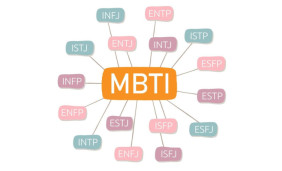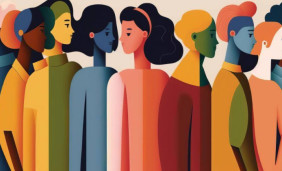The Myers-Briggs Personality Test is one of the most well-known tools for understanding personality differences. It helps individuals recognize their preferences in how they perceive the world and make decisions. This type of assessment is widely used in personal development, career counseling, and team building to promote better communication and collaboration. Based on Carl Jung’s theory of psychological types, the system was developed by Isabel Briggs Myers and Katharine Cook Briggs to make these concepts accessible to the public. It categorizes people into 16 Personality Types, each with unique strengths and tendencies.
Many individuals appreciate how the MBTI test can reveal insights that improve self-awareness. By understanding your type, you can gain clarity about your strengths, possible blind spots, and areas for growth. The results are presented in a clear format, making it easier to interpret and apply them in real life. This assessment is not only about labeling, but also about providing a framework for personal and professional growth.

The Myers-Briggs test can be taken by anyone who wants to explore personality traits. It offers a practical and engaging way to identify your dominant preferences, such as whether you are more extroverted or introverted, or if you rely more on intuition or sensing. Each personality profile comes with detailed explanations that help you understand how these traits influence your behavior and choices.
How the Myers-Briggs Personality Test Works
The structure of the MBTI personality test revolves around four main dichotomies: Extraversion (E) vs. Introversion (I), Sensing (S) vs. Intuition (N), Thinking (T) vs. Feeling (F), and Judging (J) vs. Perceiving (P). Your answers to a series of multiple-choice questions determine your position on each of these scales. The combination of preferences forms a four-letter code representing your personality type, such as INFJ or ESTP.
The Myer-Briggs personality test provides results that highlight natural tendencies, allowing you to make more informed decisions in areas like career choice, relationships, and personal growth. Since it does not measure skills or abilities, but rather preferences, it can be equally valuable to students, professionals, and leaders. Some people seek a Myers-Briggs test for free online as an introduction to the method, though certified practitioners administer official versions. In either case, understanding your type can lead to improved interactions and greater empathy for others’ differences. The assessment can also be a useful tool for teams looking to optimize workflow and communication.
Benefits of Taking the Myers-Briggs Test
One key benefit of a free Myers-Briggs test is its ability to provide immediate insights without requiring specialized training to interpret results. This accessibility makes it appealing for people who want to quickly learn more about themselves. The structured nature of the test ensures consistency, helping you see how your responses translate into your personality type.

The personality test by Myers-Briggs approach is grounded in psychology, giving it credibility among both academics and practitioners. By recognizing patterns in how you process information and make decisions, you can identify strengths to leverage and weaknesses to work on. Whether used for personal reflection or team development, the insights are practical and actionable. Some individuals opt for a free Myers-Briggs personality test as a way to explore type theory before committing to an official assessment. This allows for experimentation and curiosity, while still providing valuable self-discovery. For organizations, using the MBTI framework can improve collaboration and reduce conflicts by promoting understanding of different working styles.
Understanding the Myers-Briggs Test in Career Development
A MBTI test free option can still help identify career paths that align with your natural preferences. Knowing whether you lean toward structured environments or flexible ones, or whether you prefer working with data or people, can help in making fulfilling career choices. Understanding your type also assists in preparing for interviews and adapting to workplace dynamics.
Multiple Myers-Briggs personality tests are available, each with variations in length and depth. Some are shorter for quick insights, while others are more comprehensive, exploring each dimension in detail. Choosing the right version depends on your goals, whether personal growth, relationship improvement, or career advancement.
A Myers-Briggs personality test for free can be an excellent starting point for anyone new to personality theory. Although it may not have the depth of an official version, it still offers enough guidance to begin applying personality type insights in daily life.

MBTI in Personal Relationships
With the Myers-Briggs type indicator (MBTI) test, individuals can better understand how their preferences affect communication styles, emotional needs, and conflict resolution strategies. This knowledge is particularly beneficial for couples and families, as it promotes empathy and reduces misunderstandings.
Taking a free MBTI test together with a partner or friend can spark meaningful conversations about differences and similarities. By comparing results, people can appreciate each other’s perspectives and adapt their behavior accordingly.
Common MBTI Personality Types Table
| Type | Main Traits | Strengths | Potential Challenges |
|---|---|---|---|
| INTJ | Strategic, logical | Planning, problem-solving | May seem distant |
| ENFP | Enthusiastic, creative | Inspiring, adaptable | Easily distracted |
| ISTJ | Responsible, organized | Reliable, detail-oriented | Resistant to change |
| ESFJ | Caring, supportive | Team-oriented, empathetic | Overly concerned with approval |


 Myers-Briggs Explained in Less than 5 Minutes
Myers-Briggs Explained in Less than 5 Minutes
 MBTI Personality Test
MBTI Personality Test
 Myers-Briggs (MBTI) - Personality Quiz
Myers-Briggs (MBTI) - Personality Quiz
 Myers-Briggs Test for Self-Discovery and Personal Growth
Myers-Briggs Test for Self-Discovery and Personal Growth
 Deepening Self-Understanding Using the 16 Personalities Test
Deepening Self-Understanding Using the 16 Personalities Test
 Full Myers-Briggs Test: A Complete Guide to Understanding Your Personality
Full Myers-Briggs Test: A Complete Guide to Understanding Your Personality
 How to Analyze Your Myers-Briggs Personality Profile
How to Analyze Your Myers-Briggs Personality Profile
